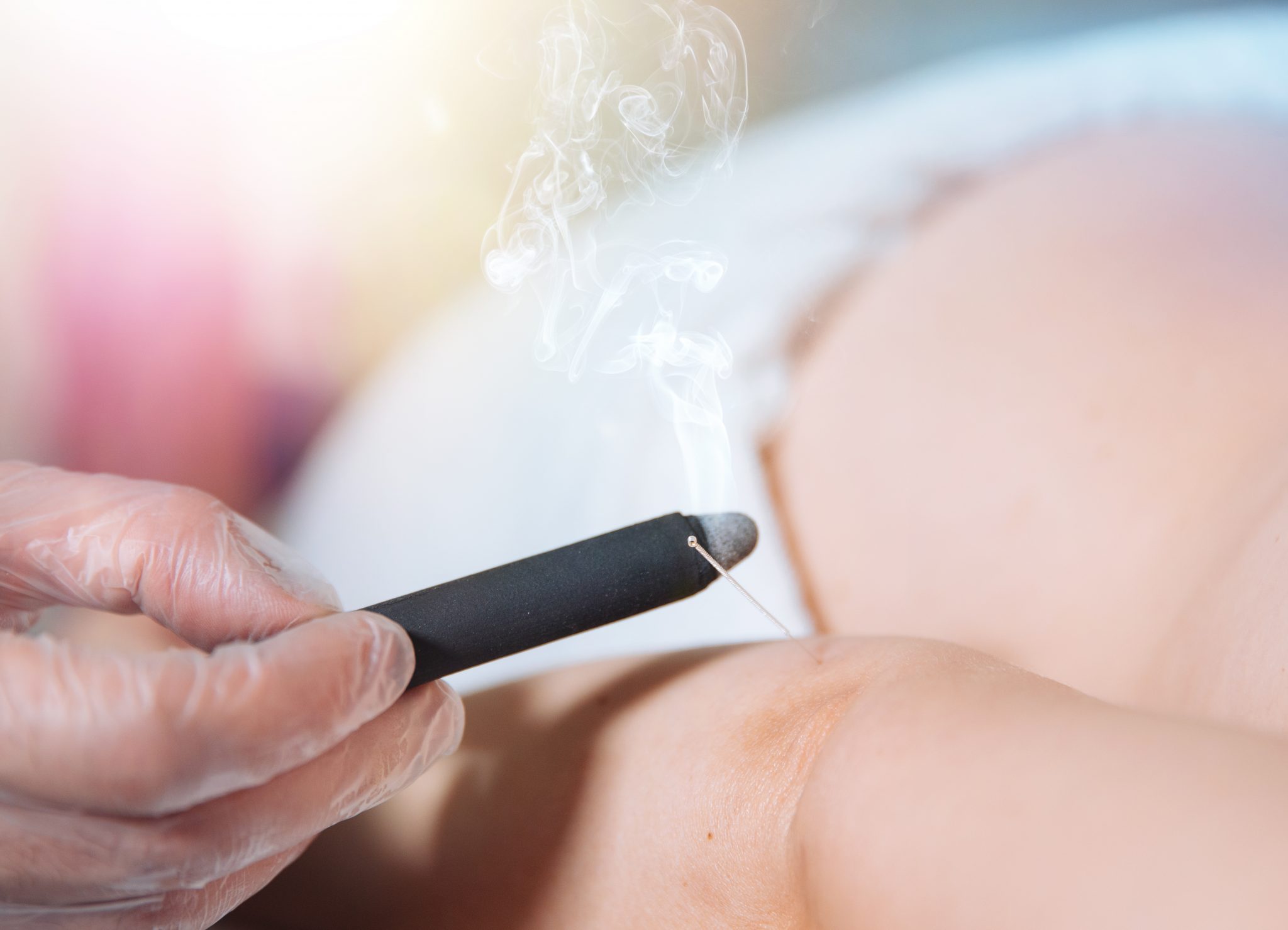
Why I Love Moxibustion, and You Should Too
The other day, I was at my friend’s house when her 4-year-old daughter started to complain that her tummy hurt. My friend asked if there was anything I could do to help. I offered to rub some essential oils on her belly that are specifically great for digestion. I have many fond memories of my mother rubbing oils on my belly to rapidly and effectively treat tummy ache. I use oils often on my own daughter (diluted with carrier oil, of course, for safety reasons). In fact, I never leave home without my essential oil first-aid kit.
However, the little girl shook her head and refused the oils. No big deal. I acknowledged her preference and offered another option. As an acupuncturist, I always have multiple treatment modalities available. So I offered some moxa. I said, “It won’t hurt. You’ll lay down with your head in mommy’s lap and pull up your shirt. Then I’ll light this moxa and hold it near your belly for a few minutes. It will feel warm and cozy and very relaxing. Here, let me try it on mommy first.”
We demonstrated the moxa treatment on her mom’s belly. As soon as the little girl saw that her mom was safe and felt comfortable with the moxa, she dropped her guard and allowed me to treat her. After a few minutes of moxa on some key acupoints on her belly, she got up and skipped out of the room as if everything was back to normal.
What is moxa? Moxibustion, also known as moxa, is a form of heat therapy using an herb called mugwort (artemisia vulgaris) burned at or above certain acupuncture points. Moxa is traditionally practiced in China, Japan, Nepal, Mongolia, and Vietnam. Its practice predates acupuncture and has been around since at least 200 or 300 BC (Cheng & Deng, 2010).
Ancient literature refers to moxa’s use in preventing illness and promoting health. It is said that moxa on an acupuncture point called Zu San Li (ST-36) promotes longevity. A famous Japanese physician, Dr. Shimetaro Hara, attributed his long life to the regular use of moxa on Zu San Li. He lived until the age of 108 (Wada, 2015).
Here at Naturna, we focus on evidence-based practice, even with Traditional Chinese Medicine! Modern clinical research shows that moxa therapy may be able to:
- Produce analgesic effect
- Inhibit spread of infection
- Have anti-inflammatory effects
- Balance the autonomic nervous system and promote parasympathetic response
- Promote recovery from fatigue
- Boost immune response without exacerbating auto-immune issues
(Newman & Medvedov, 2007).
With that research in mind, here are a few things that I commonly use moxa therapy for:
- Fertility
- Irregular menstruation
- Menstrual Cramps
- Pain
- Immunity
- Fatigue
- Allergies
- Digestive disturbance
- Breech presentation
Another thing to know is that moxa comes in several forms. At Naturna, we use moxa sticks, but some other ways you might see moxa used are in small cones placed on the body, or in paper rolls that resemble cigars. Something that burns near your body may seem a bit scary, but moxa smoke is very healing and calming, and the heat that comes from the moxa sticks is not at all painful, but instead gently warming.
A moxa treatment is not only powerful, it is also very relaxing! Given all these amazing benefits, you can see why we often incorporate moxa as part of our acupuncture treatments. To learn more about moxibustion and schedule your initial consultation, call us today at 646-609-4250!
References
Cheng, X., & Deng, L. (2010). Chinese acupuncture and moxibustion. Beijing: Foreign Language Press.
Newman, J., & Medvedov, D. (2007). MOXA: Shedding Light on the Practice of Moxibustion. Miami.)
Wada, M. (24 November, 2015). 108 Years Old Doctor. Austin Japanese Acupuncture Blog. Retrieved from http://www.austinjapaneseacupuncture.com/blog/2015/11/24/108-years-old-doctor


